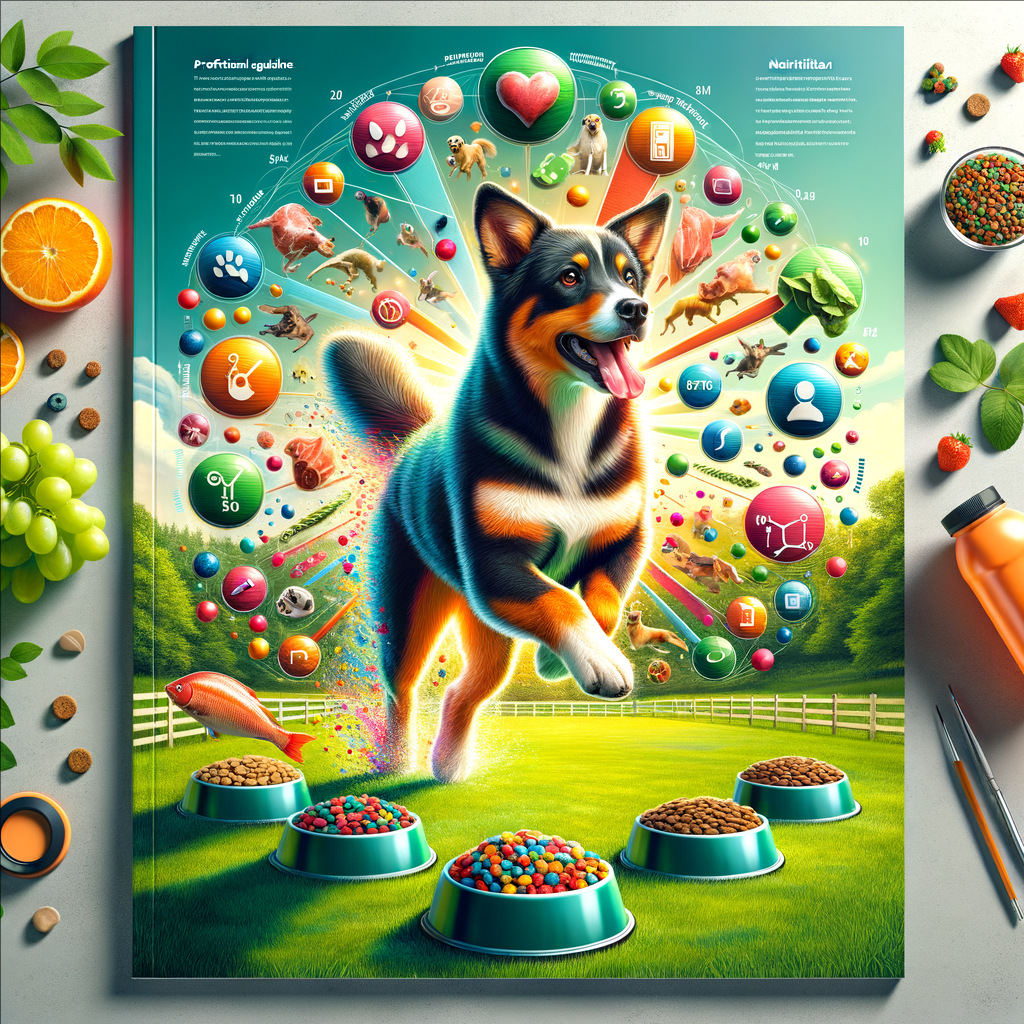The Importance of Protein in Your Dog’s Diet
What Is Protein?
Protein is a vital macronutrient composed of amino acids, often termed the building blocks of life. These amino acids are essential for numerous bodily functions, including:
- Cell Structure: Proteins contribute to building and maintaining cell structures throughout your dog’s body.
- Enzyme Production: Many enzymes that catalyze biochemical reactions are proteins.
For dogs, amino acids fall into two categories: essential amino acids, which must be obtained through food, and non-essential amino acids, which the body can produce. A balanced diet should supply all essential amino acids necessary for optimal health.
Why Do Dogs Need Protein?
The need for protein in dogs primarily focuses on three key areas: growth, maintenance, and tissue repair. Here are compelling reasons to prioritize protein in your dog’s diet:
- Muscle Development: Protein is fundamental for muscle growth, repair, and recovery, especially after exercise or injury.
- Immune Function: Antibodies are proteins that help fend off infections. Adequate protein intake is crucial for maintaining a robust immune response.
Additionally, proteins aid hormone production and enzyme functions in the body. Insufficient protein levels can lead to serious issues like stunted growth in puppies or weakened immunity in adult dogs over time.
Sources of Quality Protein
When it comes to selecting the best protein for your dog, not all protein sources are equal. Here’s a guide to help you choose high-quality proteins that provide complete nutrition:
Animal-Based Proteins
These are generally superior sources of protein because they often contain a complete amino acid profile:
- Meat: Chicken, beef, and lamb are excellent choices.
- Fish: Salmon and other fatty fish are rich in protein and omega-3 fatty acids.
- Eggs: These are not only a great source of protein but also easy to digest.
Plant-Based Proteins
While animal-based proteins usually provide more comprehensive profiles, some plant sources can supplement your dog’s diet:
- Legumes: Lentils, chickpeas, and peas offer valuable protein.
- Quinoa: A complete protein source that can be a good addition but should not replace animal proteins.
Keep in mind, while plant-based proteins can be beneficial, they should not entirely replace animal-derived protein in your dog’s diet due to their incomplete amino acid profiles.
How Much Protein Does Your Dog Need?
Dogs’ protein requirements depend on several factors, including age, breed size, activity level, and any specific health conditions. Here’s a general guideline for protein requirements:
- Puppies: Growing dogs typically require higher levels of protein—about 22% to 32% crude protein in their diet.
- Adult Dogs: Most adult dogs do well on 18% to 25% crude protein.
To determine the exact protein needs for your dog, especially regarding lifestyle or any existing medical conditions, it’s best to consult with a veterinarian. They can guide you on appropriate dietary adjustments tailored to your pet’s specific needs.
Signs Your Dog May Be Lacking Protein
Keeping an eye on your dog’s health can help you identify if they aren’t getting enough protein. Here are some indicators to
look out for:
1. Changes in Coat Quality
A dog’s coat can tell you a lot about their health. If you notice that your dog’s fur is becoming dull, brittle, or if they are shedding excessively, these could be signs of a nutritional deficiency, including low protein levels.
2. Weight Loss
Unexplained weight loss can be alarming, especially if your dog is eating regularly. If your pup seems to be losing weight despite consistent feeding, it may signal insufficient protein intake or other dietary deficiencies.
3. Decreased Energy Levels
A lack of protein can lead to lethargy. If your normally energetic dog seems tired or disinterested in play, this could point to inadequate nutrition.
4. Muscle Wasting
Muscle atrophy can occur if a dog isn’t consuming enough protein, affecting their strength and mobility.
If you observe any of these concerning signs regarding your dog’s health or behavior, don’t hesitate to contact your veterinarian. Early intervention can help address any nutritional issues before they become more serious.
Conclusion: Keep Your Canine Companion Thriving
In summary, protein is a fundamental component of a dog’s diet, crucial for growth, maintenance, and overall health. By focusing on high-quality protein sources and ensuring your pup receives the right amount based on their age, size, and activity level, you can significantly enhance their well-being. Always stay vigilant about any signs of protein deficiency, as recognizing them early can lead to better health outcomes.
Your dog deserves the best nutrition you can provide, so take the time to evaluate their diet, consult with a vet, and make necessary adjustments. Together, you can ensure that your beloved pet remains a happy, healthy, and thriving member of your family.
What are your experiences with choosing the right protein for your dog? Share your thoughts or any questions you have in the comments below! And if you found this post helpful, please consider sharing it with fellow dog lovers.
news via inbox
Nulla turp dis cursus. Integer liberos euismod pretium faucibua





